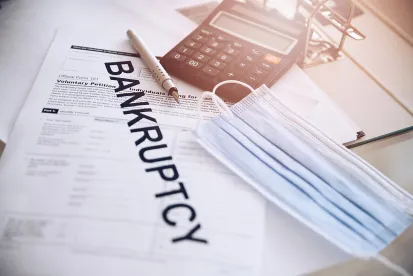In 2019, Congress enacted the Small Business Reorganization Act. This legislation created a new type of Chapter 11 reorganization under which certain businesses with total debts less than a certain threshold (currently $7.5 million) could reorganize. These provisions, known as Subchapter V eliminated certain requirements for confirmation of a reorganization plan and include other changes to make small business reorganization quicker and less expensive.
However, Subchapter V also modified the provisions regarding discharge of debts. In a traditional corporate Chapter 11 reorganization, a broad discharge is available of virtually all debts. Subchapter V includes a specific provision in § 1192(2) which excepts from discharge debts “of the kind specified in section 523(a).” Section 523(a) in turn provides that a bankruptcy court discharge “does not discharge an individual debtor” from certain types of debts, including debts for “willful and malicious injury by the debtor to another to another entity or to the property of another entity.”
In In re Cleary Packaging, No. 21-1981, 2022 WL 2032296 (4th Cir. June 7, 2022), the United States Court of Appeals for the Fourth Circuit addressed the applicability of § 1192(2) in the case of a corporate debtor and concluded that the types of debts specified in § 523(a) could not be discharged without the consent of the applicable creditor.
Cleary Packaging involved a creditor that held a judgment of over $4 million for intentional interference with contracts and tortious interference with business relations. The creditor filed a complaint seeking a determination that the judgment was a debt for “willful and malicious injury” and therefore non-dischargeable. The bankruptcy court dismissed the complaint reasoning that the exceptions to discharge set forth in § 523(a) only apply to individual debtors.
On direct appeal to the Fourth Circuit, the court of appeals reversed the bankruptcy court decision. Crucial to this decision is the language in § 1192(2), which references debts “of the kind specified in section 523(a) of this title.” This meant that Congress was referring to types of debts, not the type of debtor. The Fourth Circuit also drew from similar language contained in Chapter 12 of the bankruptcy code which is used to reorganize the debts of family farmers and fishermen. Several courts have interpreted Chapter 12 to prohibit non-consensual discharge of debts of a kind specified in section 523(a). Finally, the Fourth Circuit recognized the difference between Subchapter V and a traditional Chapter 11 reorganization where the absolute priority rule must be followed and reasoned that applying the limitations on discharge to corporate debtors reflected a sense of balance in and fairness.
The Fourth Circuit is the first Court of Appeals to rule on this important issue and is likely to be persuasive authority in courts outside its jurisdiction at least until further appellate courts weigh in on the matter. Debtors faced with similar judgments or debts falling within the ambit of § 523(a) should consider whether Subchapter V is a viable vehicle for reorganization. Creditors holding such judgments or other debts should be cognizant of the possible need to file a complaint to determine dischargeability within the time period set forth in Rule 4007.




 />i
/>i

